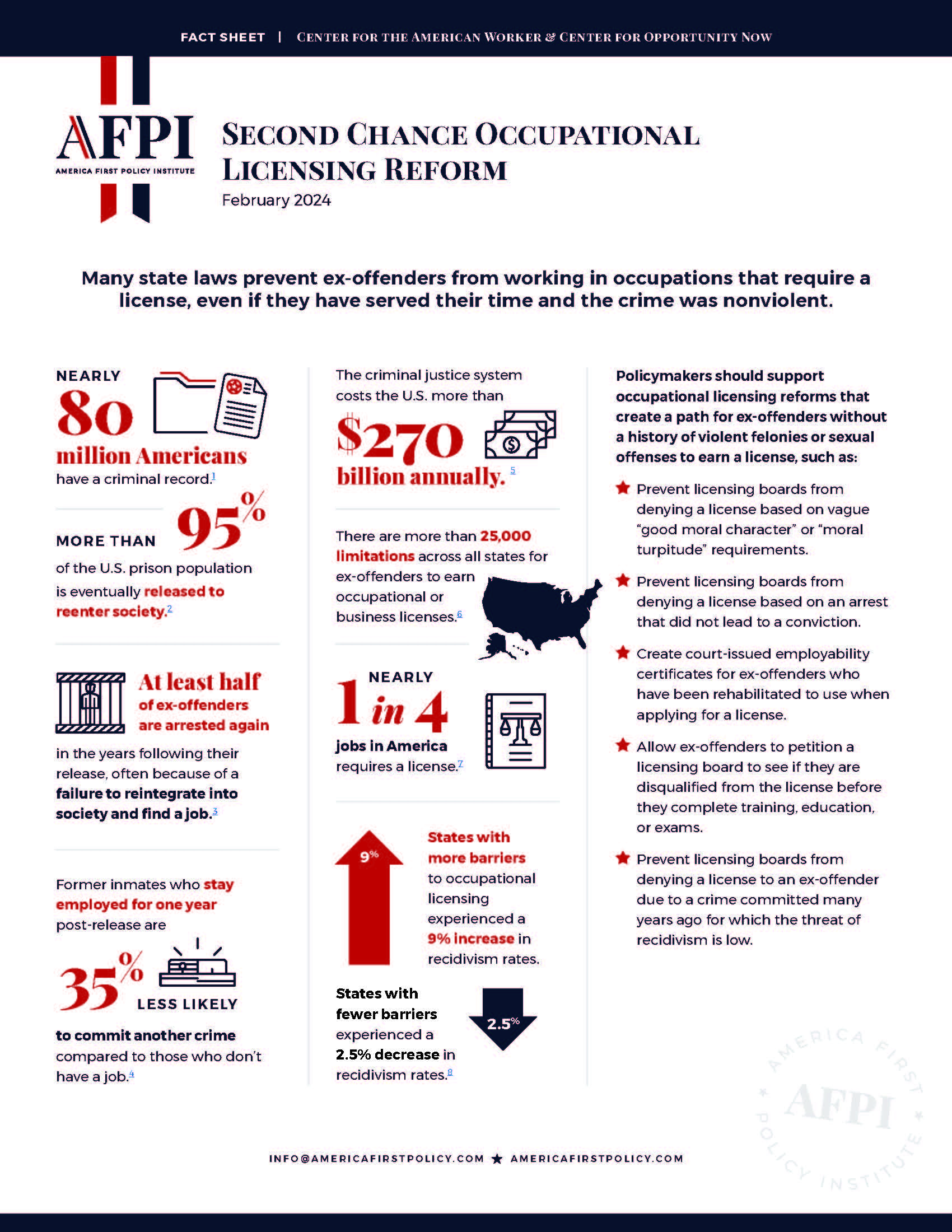Second Chance Occupational Licensing Reform - Fact Sheet
Many state laws prevent ex-offenders from working in occupations that require a license, even if they have served their time and the crime was nonviolent.
Nearly 80 million Americans have a criminal record.
More than 95% of the U.S. prison population is eventually released to reenter society.
At least half of ex-offenders are arrested again in the years following their release, often because of a failure to reintegrate into society and find a job.
Former inmates who stay employed for one year post-release are 35% less likely to commit another crime compared to those who don't have a job.
The criminal justice system costs the U.S. more than $270 billion annually.
There are more than 25,000 limitations across all states for ex-offenders to earn occupational or business licenses.
Nearly 1 in 4 jobs in America requires a license.
States with more barriers to occupational licensing experienced a 9% increase in recidivism rates.
States with fewer barriers experienced a 2.5% decrease in recidivism rates.
Policymakers should support occupational licensing reforms that create a path for ex-offenders without a history of violent felonies or sexual offenses to earn a license, such as:
- Prevent licensing boards from denying a license based on vague “good moral character” or “moral turpitude” requirements.
- Prevent licensing boards from denying a license based on an arrest that did not lead to a conviction.
- Create court-issued employability certificates for ex-offenders who have been rehabilitated to use when applying for a license.
- Allow ex-offenders to petition a licensing board to see if they are disqualified from the license before they complete training, education, or exams.
- Prevent licensing boards from denying a license to an ex-offender due to a crime committed many years ago for which the threat of recidivism is low.
